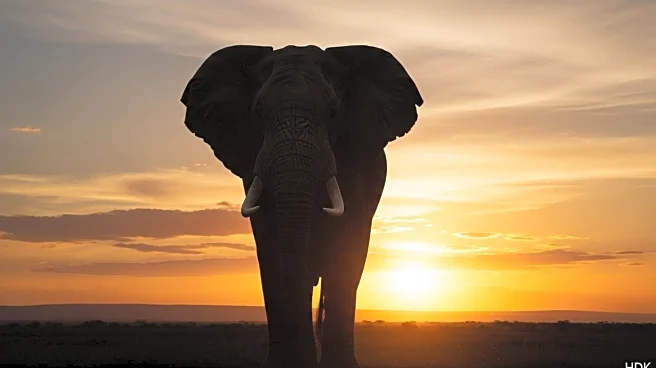What is the story about?
What's Happening?
Peter Mutharika, aged 85, has been sworn in for a second term as the President of Malawi, making him Africa's second-oldest sitting head of state after Cameroon's Paul Biya. Mutharika's return to power follows a dramatic political comeback after his previous presidency from 2014 to 2020 was cut short by a court-overturned re-election. His recent victory, securing approximately 56% of the vote against incumbent Lazarus Chakwera's 33%, marks a significant shift in Malawian politics. Mutharika's inauguration in Lilongwe underscores a political landscape shaped by nostalgia and questions about leadership in old age.
Why It's Important?
Mutharika's return to power is significant as it reflects the persistence of personality-driven politics in Malawi and the broader region. His leadership is seen as a response to public dissatisfaction with economic stagnation and corruption under the previous administration. However, his advanced age raises concerns about his ability to address the nation's challenges, including economic instability, inflation, and climate-related food security issues. This development also revives the debate on the balance between experience and the need for political renewal, as younger voices remain sidelined in African politics.
What's Next?
Mutharika has pledged to restore economic stability and combat corruption, aiming to rebuild confidence in Malawi's struggling economy. Observers will be watching how he addresses these promises, given the challenges of his advanced age and the need for a long-term vision. The political landscape in Malawi may see further shifts as the public and political analysts assess Mutharika's ability to connect with the urgency of a new generation and address the pressing issues facing the nation.
Beyond the Headlines
Mutharika's presidency highlights a broader trend in African politics, where age remains a defining feature of leadership. This gerontocratic pattern raises questions about the continent's ability to renew its leadership class and adapt to the demands of a younger, more dynamic population. Mutharika's term could shape his legacy as either a seasoned statesman or a symbol of Africa's struggle with political renewal.















